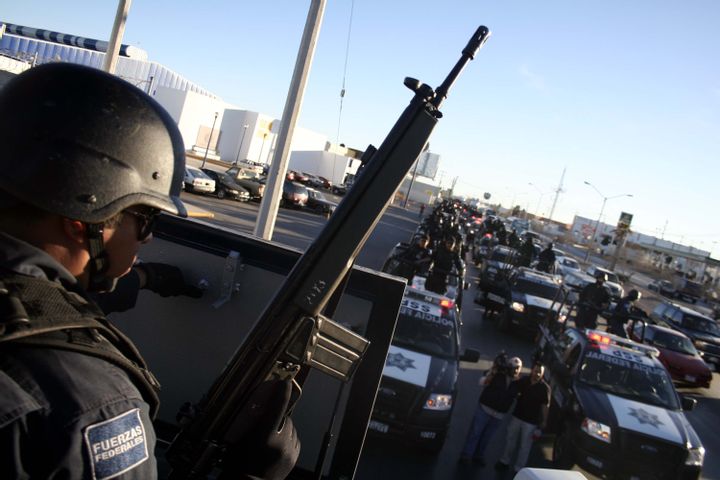Summer 2009
Repeating History in Juárez
Ciudad Juárez has a long history of violence between competing drug kingpins.
In early March Mexican soldiers rolled into Ciudad Juárez, which lies just across the border from El Paso, to stop a murder campaign by rival narcotics gangs that was killing an average of four people a day. From an American vantage point the military operation seemed extraordinary. But Nicole Mottier, a Ph.D. candidate at the University of Chicago, writes that from 1928 to 1936, long before the modern Juárez Cartel began terrorizing residents, Ciudad Juárez was already wracked by violence between competing drug kingpins.
During the Mexican Revolution (1910–20), the state of Chihuahua, where Juárez is located, was devastated by fighting and an ensuing economic depression. The state legislature was unable to meet between 1913 and 1920, and no governor managed to complete his term between 1920 and 1929. Agriculture, mining, and smaller industries in the state were ruined. Then the United States handed Mexican entrepreneurs a lucrative opportunity: Prohibition.
The violence now wracking Ciudad Juárez has a long history.
When Prohibition shuttered nightlife in El Paso in 1920, action hopped across the Rio Grande to Juárez. Gambling establishments flourished, and alcohol revenues were augmented by sales of drugs. At first, the narcotics industry was run by Enrique Fernández, the popular “king of morphine,” who financed rural schools and paid for the funerals of paupers. Fernández contented himself with placing members of his drug gang in municipal offices and on the police force, while making strategic loans and payments to state and local officials, Mottier says. But in early 1931, he refused a loan request from the governor of Chihuahua. That turned out to be a serious miscalculation. The governor promptly “discovered” that Fernández was the “narcotic king of Ciudad Juárez” and stripped him of a profitable casino concession. Fernández was assassinated on a Mexico City street corner in 1934.
Meanwhile, the Quevedo family was rising to political power in Chihuahua. Rodrigo Quevedo, who had fought in the Revolution, became governor. His brothers, Jesús and José, who ran drug operations that competed against the gangs of Fernández, according to Mottier, held various official posts, including such offices aspresidente municipal, tax collector, state legislator, city councilor, and mayor. After Fernández was shot, the evidence he was carrying in his coat pocket against the Quevedo family disappeared. The Quevedo brothers won the drug war and the rival gangs merged.
The repeal of Prohibition in December 1933 nearly wiped out Juárez tourism for a time, and the Quevedo family lost wealth and influence. José Quevedo was eventually ousted from the municipal presidency, but only with the aid of federal troops.
THE SOURCE: “Drug Gangs and Politics in Ciudad Juárez: 1928–1936” by Nicole Mottier, in Mexican Studies, Winter 2009.
Photo courtesy of Flickr/Jesús Villaseca Pérez
